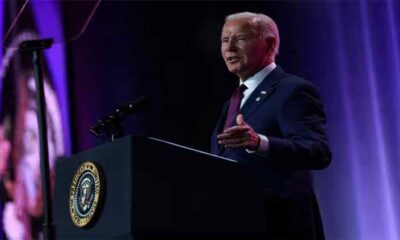Taxing people’s inheritance cannot address inequality and has “never removed poverty”, Indian Prime Minister Narendra Modi told The Times of India newspaper, alleviating fears that such a tax could be imposed if he returns to power after the elections.
Inheritance tax and wealth tax have become key campaign issues in the world’s largest election amid widening economic inequality with Modi’s Bharatiya Janata Party (BJP) and the main opposition Congress accusing each other of being in favour of such taxes.
Read more: India unemployment — The biggest worry in world’s fastest growing economy: Poll
Terming such taxes “dangerous problems disguised as solutions”, Modi, in an interview published on Monday, said that they have never been successful and have only distributed wealth “so that everyone is equally poor”.
“I do not think they are solutions by any stretch of the imagination … These policies sow discord and block every road to equity, they create hatred and destabilise the economic as well as social fabric of a nation,” he said.
Campaigning in India’s elections has heated up after the first phase of polling on April 19. Modi has accused Congress of favouring minority Muslims and aiming to dilute affirmative action while the opposition party has said Modi fears losing and was using divisive language to distract voters from real issues such as unemployment, rising prices and rural distress.
Read more: Educated and unemployed: India’s angry young voters
India has recorded a lower voter turnout in polling so far compared to elections in 2019, sparking concerns in the poll panel and political parties that rising temperatures and weddings in some parts of the country may be keeping voters at home in an election without a strong, central issue.
The third of the seven phases of voting is set for May 7.
THE ERSTWHILE ESTATE DUTY
India implemented an inheritance tax, known as estate duty, in 1953. But it was abolished in 1985 by the Rajiv Gandhi government. It also previously had a wealth tax and a gift tax, which were done away with in 2015 and 1998, respectively.
In India, there is currently no estate, inheritance, or generation-skipping taxes. When a person with significant assets dies, the assets, whether movable or immovable, are transferred to the legal heirs or nominees in accordance with the deceased’s will or in equal ratio if not specified.
THE CONTROVERSY
It all started last month when Sam Pitroda – the chairperson of the Indian Overseas Congress – described the inheritance tax, as it existed in the United States as an “interesting idea” – the comments that produced criticism from the BJP as the Congress distanced itself from his statements.
Explaining the concept of inheritance tax in certain American states, Pitroda said a person having $100 million worth of wealth could only transfer probably 45 per cent to his children after his death, 55pc is grabbed by the government.
“That’s an interesting law. It says you, in your generation, made wealth, and you are leaving now, you must leave your wealth for the public, not all of it, half of it, which to me sounds fair.”
Read more: India youth unemployment much higher among graduates: ILO
About India, he said the country didn’t have such provisions and the children of an individual worth 10 billion rupees inherited the entire sum after his death.
In the US, only six states impose an inheritance tax. Additionally, there is a tax known as the estate tax, or “death tax,” which is imposed on the transfer of property after death.
According to Pitroda, wealth distribution is a matter of policy and underscored the necessity of implementing a “minimum wage”.
“The Congress party would frame a policy through which the wealth distribution would be better. We don’t have a minimum wage [in India]. If we come up with a minimum wage in the country saying you must pay so much money to the poor, that’s the distribution of wealth,” he said.
Post Views: 34


 Fashion3 months ago
Fashion3 months ago
 World3 months ago
World3 months ago
 World3 months ago
World3 months ago
 Sports3 months ago
Sports3 months ago
 Sports3 months ago
Sports3 months ago
 World3 months ago
World3 months ago
 Business2 months ago
Business2 months ago
 Tech3 months ago
Tech3 months ago



















